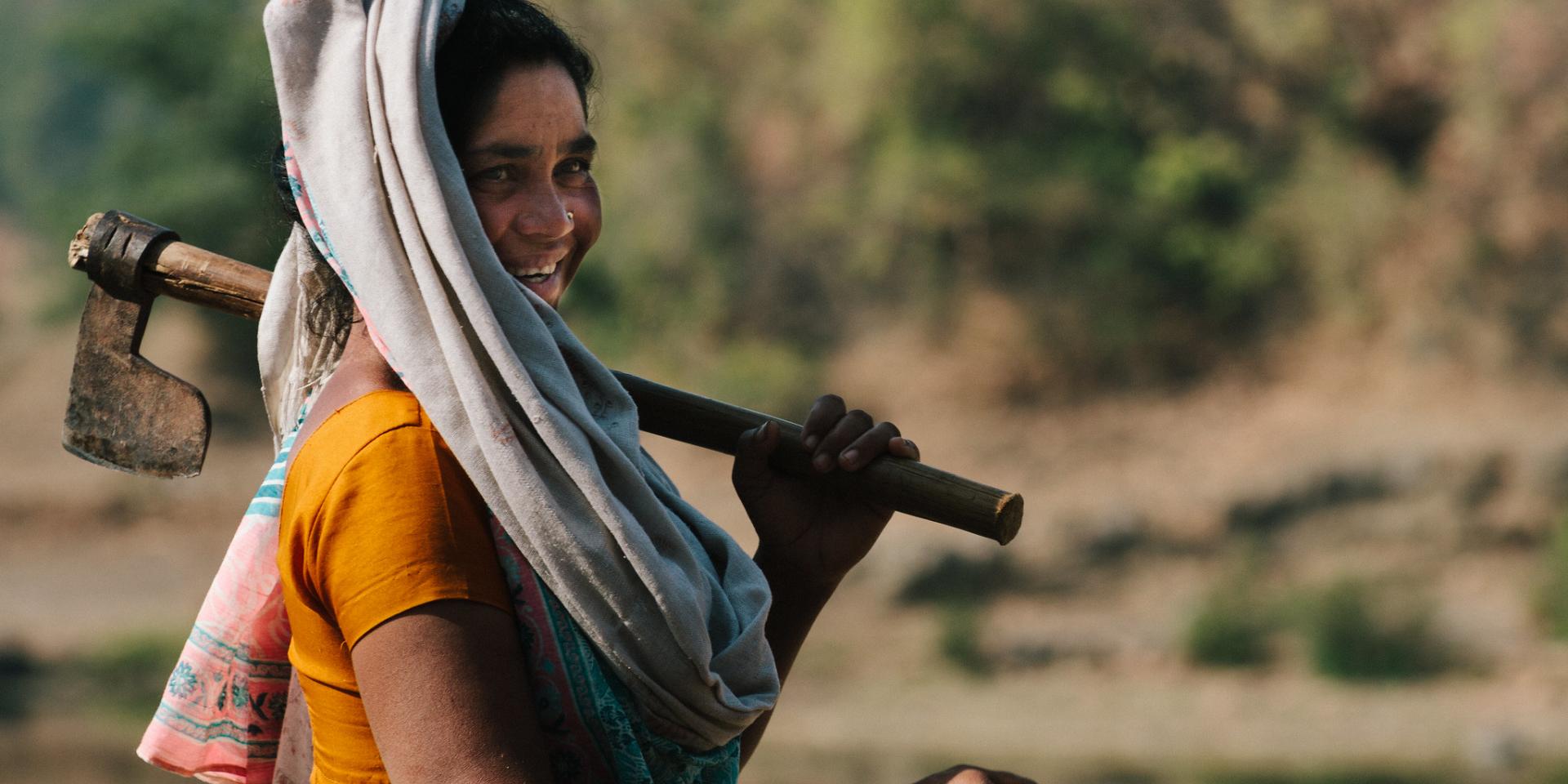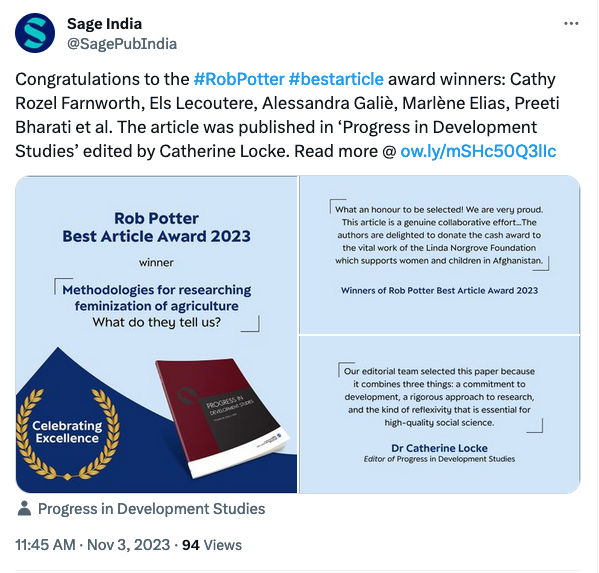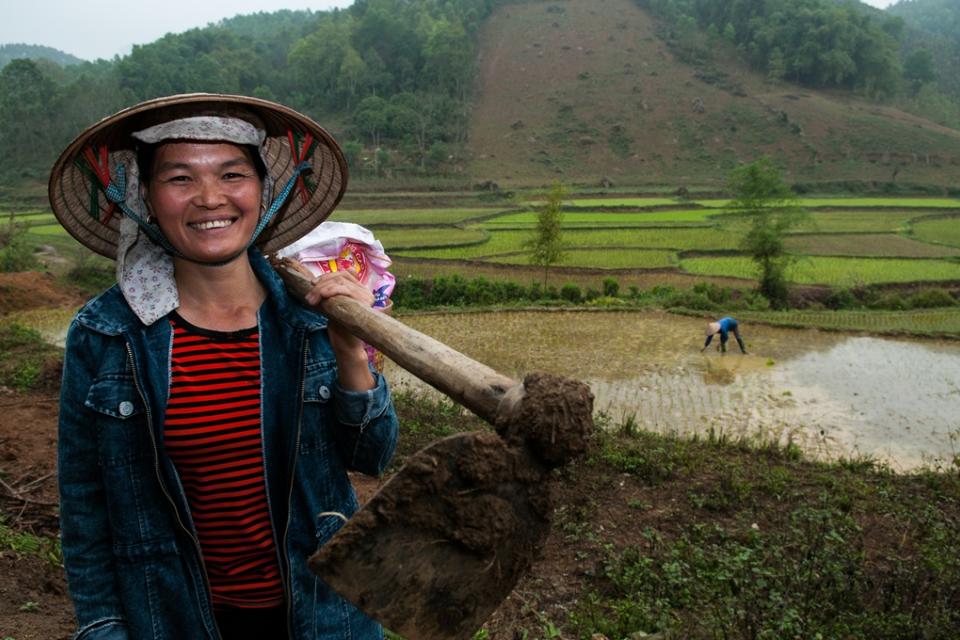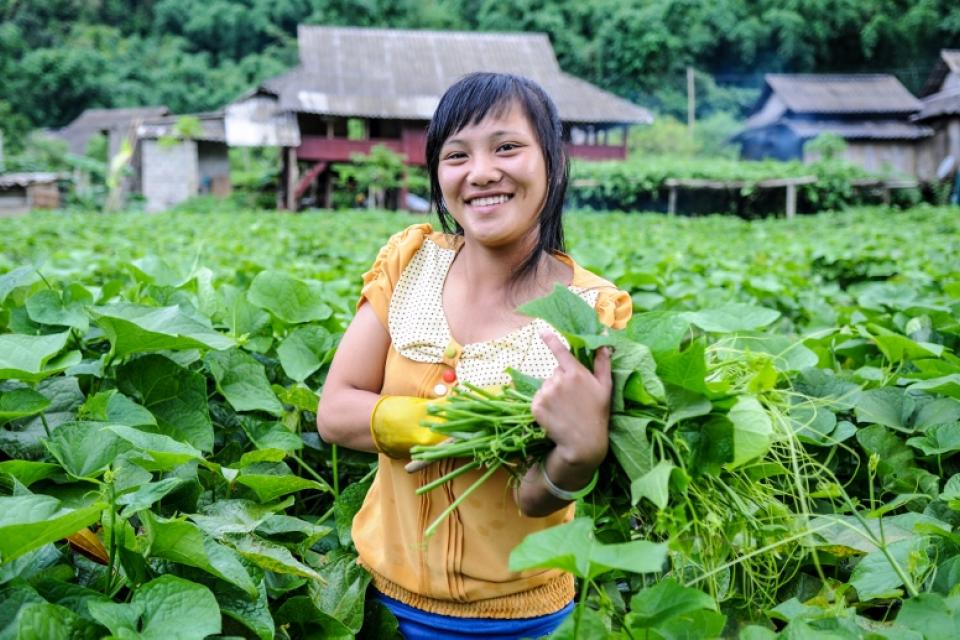CGIAR collaboration wins SAGE Best Article Award 2023
 Photo: Adam Cohn/Flickr.
Photo: Adam Cohn/Flickr.
Sometimes, it pays to open emails with the dubious subject line of “Congratulations!”. Cathy Rozel Farnworth, Els Lecoutere and their co-authors were honoured to be recognized with the “2023 Progress in Development Studies Best Article Award” by SAGE Publishing. Their article brought together CGIAR researchers and colleagues to collectively identify critical methodological insights for research on gender relations, effectively and persuasively critiquing simplistic approaches to the feminization of agriculture.
This blog post was authored by Cathy Rozel Farnworth and Els Lecoutere after their article “Methodologies for Researching Feminization of Agriculture: What Do They Tell Us?” published in Progress in Development Studies, Volume 23 Issue 3, July 2023, was recognized with SAGE Publishing’s “2023 Progress in Development Studies Best Article Award”.
-
An increasing body of literature suggests the feminization of agriculture in many low- and middle-income countries. Definitions of the feminization of agriculture vary, as do interpretations of what drives the expansion of women’s roles in agriculture. Understanding whether, how and why the feminization of agriculture is occurring requires effective research methodologies capable of producing nuanced data.
Ambitiously, we brought together 12 researchers and used empirical data and innovative methodologies from six projects to unpack the concept of the feminization of agriculture. Our article, “Methodologies for Researching Feminization of Agriculture: What Do They Tell Us?”, highlights evidence from work conducted in Uganda, India, Burkina Faso, Kenya, Indonesia, and several countries in sub-Saharan Africa.
The projects are part of the larger CGIAR Research Program on Policies, Institutions, and Markets. The set of projects is called “Feminization of agriculture: Building evidence to debunk myths on current challenges and opportunities.”

Our approach: widening the narrow concept of feminization of agriculture
Rather than parcel out research tasks, we discussed our ongoing work in several online meetings. Through this approach, we learned that our research questions and methodologies are very different. Finding a common understanding was one of the most important challenges in writing this paper and it created enormous learning for the team.
Our article casts doubt on a conceptualization of feminization of agriculture where men outmigrate, with women “left behind” to do the farm work with little change in their empowerment status. We argue this represents a very narrow conceptualization of agricultural feminization. We illustrate that, in some cases, women are able to turn feminization to their advantage, increasing their bargaining power within the household. In this context, women’s empowerment in agriculture may become a positive driver for the feminization of agriculture.
Methodological innovation played a key role in uncovering complexity and diversity in the processes of change affecting the agricultural sector and the impact on gender relations. We conclude that methodological fine-tuning and innovation create nuance in the story of gendered processes of agricultural transition, promoting the development of improved and more relevant interventions and policy measures in agri-food systems.
A “persuasive contribution” for gender research beyond agriculture
Dr. Catherine Locke, Editor of SAGE Publishing’s Progress in Development Studies highlighted our “commitment to development, a rigorous approach to research, and the kind of reflexivity that is essential for high quality social science.”
She praised the critical methodological insights for research on gender relations, which the editorial team considered strongly relevant for research within and beyond the agricultural sector.
We are donating our $200 prize money to the Linda Norgrove Foundation. This foundation provides grants to fund education, health and childcare for women and children in Afghanistan. The foundation’s work includes funding a maternal health clinic in Herat, providing surgery for children across the country, buying shoes for young children, providing emergency food and hygiene parcels, and supporting young women through university.
* Authors of “The Best Article Award 2023” are: Cathy Rozel Farnworth (gender researcher, Germany), Els Lecoutere (GENDER Impact Platform), Alessandra Galiè (ILRI), Bjorn Van Campenhout (IFPRI), Marlène Elias (Alliance of Bioversity International and CIAT), Markus Ihalainen (CIFOR at the time of the study), Lara Roeven (Cornell University), Preeti Bharati (independent researcher, India), Ana Maria Paez Valencia (Alliance of Bioversity International and CIAT), Mary Crossland (CIFOR-ICRAF), Barbara Vinceti (Alliance of Bioversity International and CIAT), and Iliana Monterroso (CIFOR at the time of the study).


